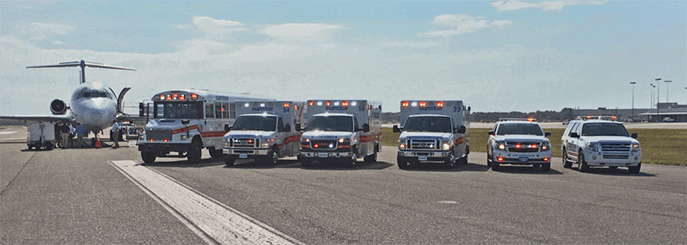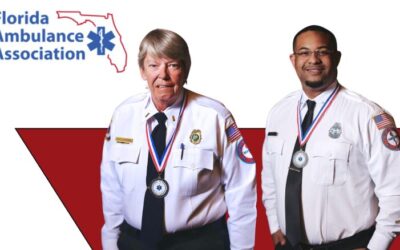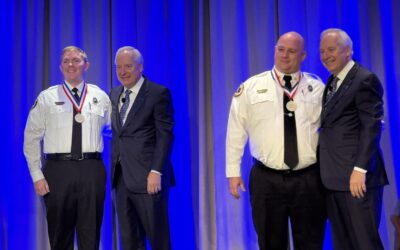September 25, 2017
EMS organizations need to be prepared for when disasters strike. But it’s even more important for them to be well-coordinated with other agencies and have set plans, resources and personnel in place.
That’s why Sunstar Paramedics created a new supervisory position, which focuses on the planning and response for small-scale events like concerts, triathlons and civil disturbances and large-scale events such as mass casualty incidents, natural or man-made disasters and EMS/fire rehab for dangerous life or health environments.
Stephen Glatstein was selected as Special Operations Supervisor at Sunstar Paramedics. He’s held several positions that have prepared him for the role, including field paramedic, communications supervisor, EMS operations supervisor, and director of emergency communications.
Since his promotion to Special Operations Supervisor, Glatstein has played an integral role in disaster preparedness and response for both Sunstar Paramedics and Pinellas County EMS & Fire. One such project is the ambulance bus project, which joined Sunstar’s fleet of specialty emergency response vehicles in late January 2016. The fleet includes a mass casualty unit, two rehab units, a special rescue Kubota utility vehicle, and two special operations trailers. To learn more, click here.
Sunstar was the first EMS agency in Florida to place not just one, but three ambulance buses in service. These ambulance buses, along with a well-trained special operations team of two paramedics, two EMTs and a supervisor, provide disaster response capabilities to the Tampa Bay area, which includes Pinellas, Pasco, Manatee, Hillsborough and Polk counties.
Sunstar is one of only two agencies in Florida to implement ambulance buses into their disaster preparedness plan and have the vehicles response ready 24 hours a day. Sunstar places the buses in locations that are accessible to north, south and mid-Pinellas County, and this strategic positioning allows an ambulance bus to be deployed within 10-15 minutes after being requested. It can respond both non-emergency and emergency incidents, evacuations, sheltering and support of rehab operations for large-scale incidents.
In addition to the ambulance bus project, Glatstein is responsible for training the special operations team on the use of specialized vehicles and equipment. He also teaches part of the new employee orientation to ensure employees are prepared for any type situation from incident command, EMS and fire rehab, and mass casualty incident response, like aircraft incidents or accidents, active shooters or terrorist attacks.
Thanks to Glatstein’s tireless work, the whole special operations team and their emergency vehicles are ready for response to any type of emergency that Pinellas County or its surrounding counties may encounter at any time.



